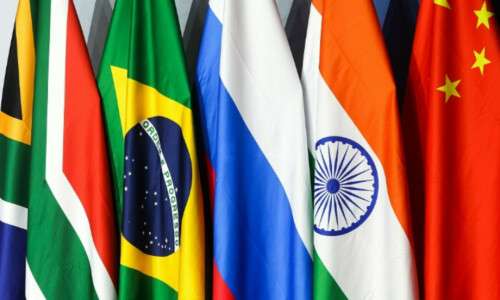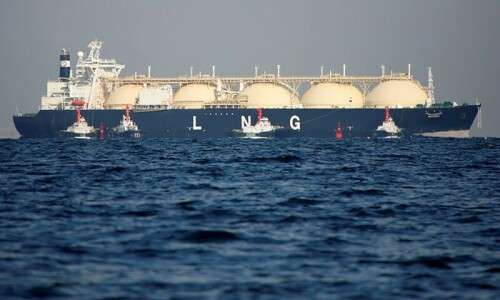International politics has always been a ruthless and dangerous arena, and it is likely to stay that way, according to Chicago University’s US scholar John J. Mearsheimer.
In the introduction of an updated edition of his book, ‘The Tragedy of Great Power Politics’, he writes: “Since no state is likely to achieve global hegemony, the world is condemned to perpetual great power competition. There are no status quo powers in the international system save for the occasional hegemon that wants to maintain its dominant position over potential rivals.”
He notes that the desire for more power does not dissipate. The ultimate aim is to be a hegemon—the sole great power in the system. Against this backdrop, the global financial, political, and economic order appears to be in chaos and flux.
The Israeli war in the Middle East has driven a significant political wedge between the global North and South, with immense damage to the image of Israeli allies due to Tel Aviv’s actions in Gaza and Lebanon.
Following the end of the BRICS summit, the Kremlin and Beijing have pushed proposals to drastically change the global financial system. Chinese President Xi Jinping reiterated in Kazan, during the BRICS (Brazil, Russia, India, China, and South Africa) Summit, that Russia and China “intend to further enhance coordination on all multilateral forums to ensure global security and a just world order.” He emphasized that their strategic partnership is a force for stability amid the most significant changes seen in a century.
Western observers note that China represents 60 percent of the group’s economic output, allowing Beijing to pledge more investments and loans to other members. China, being the largest economy in the group, acts as a magnet. Both the Kremlin and Beijing have proposed significant changes to the global financial system.
From the perspective of the global South, economic and financial sanctions have undermined the sovereignty of countries and disrupted global economic relations. Protectionist actions and trade restrictions have further undermined the multilateral trading system, impeding global sustainable development.
The United States has dismissed the notion that the organization could become a ‘geopolitical rival’ but has expressed concern over Moscow’s diplomatic maneuvers amid the ongoing Ukraine conflict. Analyst Aqdas Afzal notes that global economic thinking, particularly in developed Western economies, has shifted from free trade to strategic trade, where state power now shapes competitive advantage. Countries adversely affected are now struggling to overcome these challenges.
Former Goldman Sachs economist Jim O’Neill commented, “I would take BRICS seriously when I see signs that the two countries that matter, China and India, are actually, really trying to agree on things, rather than trying to confront each other all the time.”
A major item on the summit agenda included President Vladimir Putin’s idea for a BRICS-led payment system to rival Swift, the international financial network that Russian banks were cut off from in 2022. The final communiqué listed various projects aimed at facilitating trade between BRICS nations, though it did not include specific details or timelines.
Mr. Putin stated that the members are working on a Swift-like financial messaging system immune to Western sanctions. He also noted that over the last decade, more than 40% of global GDP growth has come from BRICS countries. “What BRICS is doing is gradually—brick by brick—building a bridge to a more democratic and just world order,” he said.
Putin asserted that the economic growth of BRICS members will increasingly depend less on external influence or interference. “This is essentially economic sovereignty,” he added.
In a move aimed at reducing reliance on the US dollar and other foreign currencies, the Shanghai Cooperation Organisation (SCO) has called for prioritizing the use of national currencies in mutual settlements. Some SCO members, including Pakistan, have entered bilateral currency swap agreements, allowing them to trade directly in their local currencies.
The State Bank of Pakistan announced a key milestone: enabling payments in rupees between Pakistan and Arab countries through the integration of Raast, the instant payment system, with the Arab Monetary Fund’s Buna platform.
The SCO Summit also decided to expedite consultations on the establishment of financial institutions expected to contribute to economic integration, trade facilitation, and regional connectivity. These include the SCO Development Bank, the SCO Development Fund, and the SCO Investment Fund.
Russian political scientist Evgenia Makhmutova notes that the Shanghai spirit ensures every member state has an equal voice, regardless of economic size, military strength, or international influence, serving as a model for multilateral cooperation

